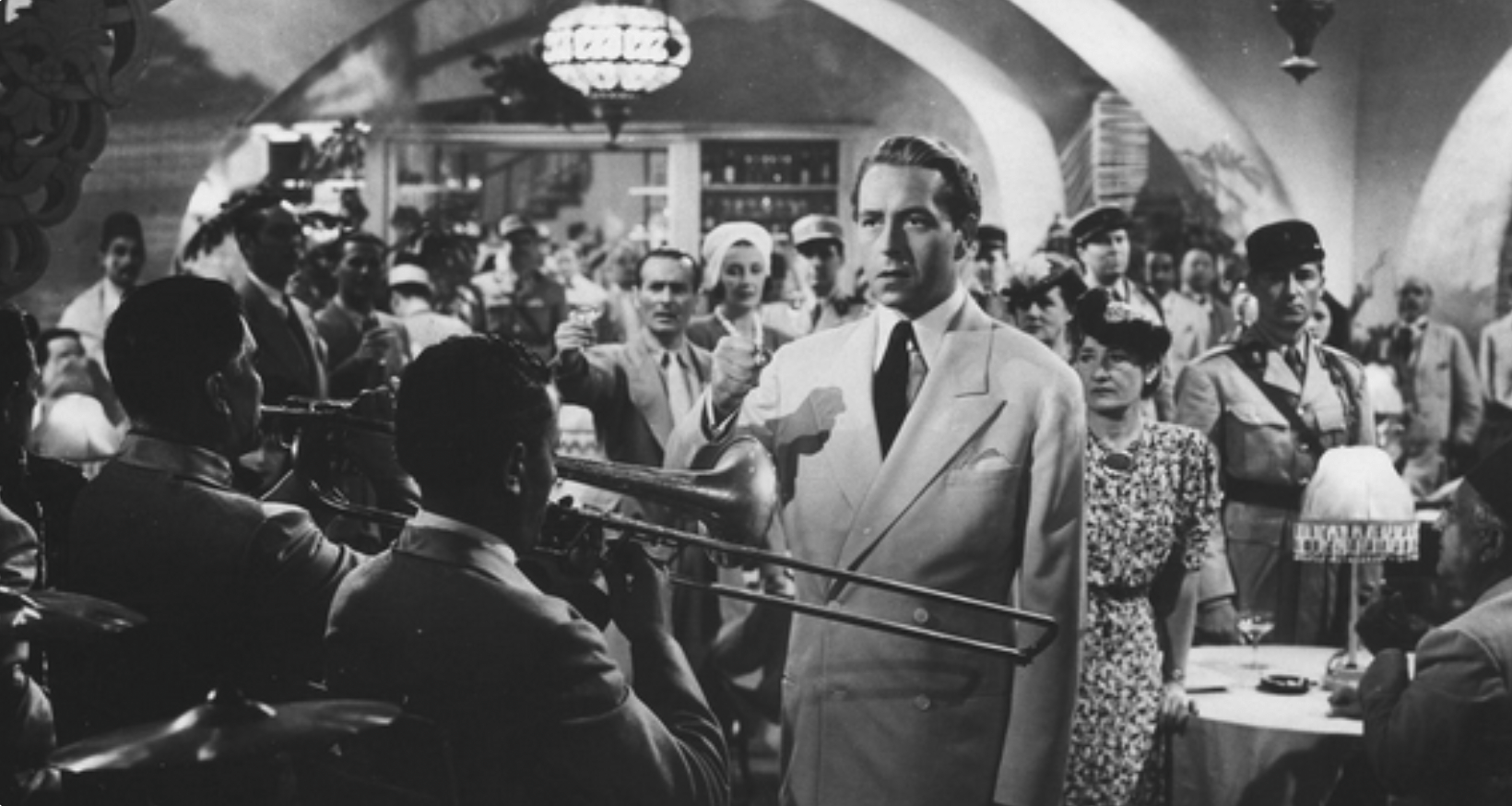The Fundamental Things Apply: Casablanca in a Time of Trump
What does the wartime classic have to do with current events? From corruption to migration — a lot, it turns out.

Lisa Van Dusen
December 30, 2018
Last Sunday, I went directly from watching America’s weekly brunch of undaunted panelists attempting to dissect the latest instalment of incomprehensibility from their rogue president to a Montreal matinée of Casablanca.
For decades, Casablanca was a culty period piece — the perfect casting, exquisite aesthetic and pricelessly quotable dialogue making it a Rocky Horror Picture Show for the Chardonnay set. I never had a dorm room, but I had a life-size poster of a drenched, trenched Bogart, silently cursing his wiseguy heart on a steamy train platform gracing my first, bachelor apartment. I schlepped a vintage Casablanca studio poster plucked from the dusty stacks of a Brussels print shop through my first trip to Europe.
Based on the millennial-heavy capacity crowd at the Gigaplex Sunday, it would seem Michael Curtiz’s accidental masterpiece is undergoing a revival. Part of it may be the publicity around the film’s 75th anniversary. But based on the applause after Rick Blaine and Capt. Louis Renault strolled into the fog and into kicker immortality, it may also have to do with its sudden relevance.
As has been exhaustively pointed out lately, the democracy-driven world order that was a product of a war far from won when the film was shot in 1942 has been under incremental assault since the dawn of the 21st century. For the first 73 years of Casablanca’s existence, the thought of a global contest between authoritarianism and liberty seemed as retro as the Nazis who colonized all the best tables at Rick’s Café and provoked the best rendition of La Marseillaise,ever.
Today, with democracy being hacked and corrupted worldwide, an American president whose range on foreign policy veers between Chamberlain and Mussolini, and journalists, dissidents and political opponents being rounded up like usual suspects from Ankara to Caracas, the stakes that reorient the love triangle of Humphrey Bogart’s Rick Blaine, Ingrid Bergman’s Ilsa Lund and Paul Henried’s Victor Laszlo don’t seem quite as exotic.
The film’s other timely themes include: Mass migration (“And so a tortuous, round-about refugee trail sprang up”); manufactured narratives (Rick’s wily third-act ruse to get Ilsa and Laszlo…spoiler alert…safely on the plane to Lisbon); sexual harassment (Renault’s exit-visas-for-sexual-favours racket); corruption (“I’m shocked, shocked to find that gambling is going on in here”…“Your winnings, sir”) and, globalization (“Of all the gin joints in all the towns in all the world, she walks into mine.”)
Of course, Casablanca is utterly pre-digital. The Oscar-winning script, famously and brilliantly revised on the fly by twins Julius and Philip Epstein and Howard Koch, would look considerably different today, if it were green-lightable at all.
First of all, Rick would know about Ilsa and Laszlo from Ilsa’s relationship status on Facebook. Secondly, Laszlo would never have made it to Morocco because the Nazis would have hacked his laptop and iPhone. Third, the Resistance meetings would all be pre-empted by bogus, phoned-in fire alarms (see above, hacking). Fourth, the Nazis would be carrying Tiki torches.
Thankfully, that’s not the Casablanca we have. Sure, there’s way too much smoking and boozing, but it was wartime. Millennial men could do worse than Rick Blaine and Victor Laszlo in a global landscape rife with wildly regressive male role models. And, it’s good to be reminded of an era when America was a haven from geopolitical trouble rather than a source of it.
Still, as Capt. Renault tells Major Strasser of the Third Reich: “You mustn’t underestimate American blundering. I was with them when they blundered into Berlin in 1918.”
What a great line.
Policy Magazine Associate Editor Lisa Van Dusen was a senior writer at Maclean’s, Washington columnist for the Ottawa Citizen and Sun Media, international writer for Peter Jennings at ABC News and an editor at AP National in New York and UPI in Washington.
